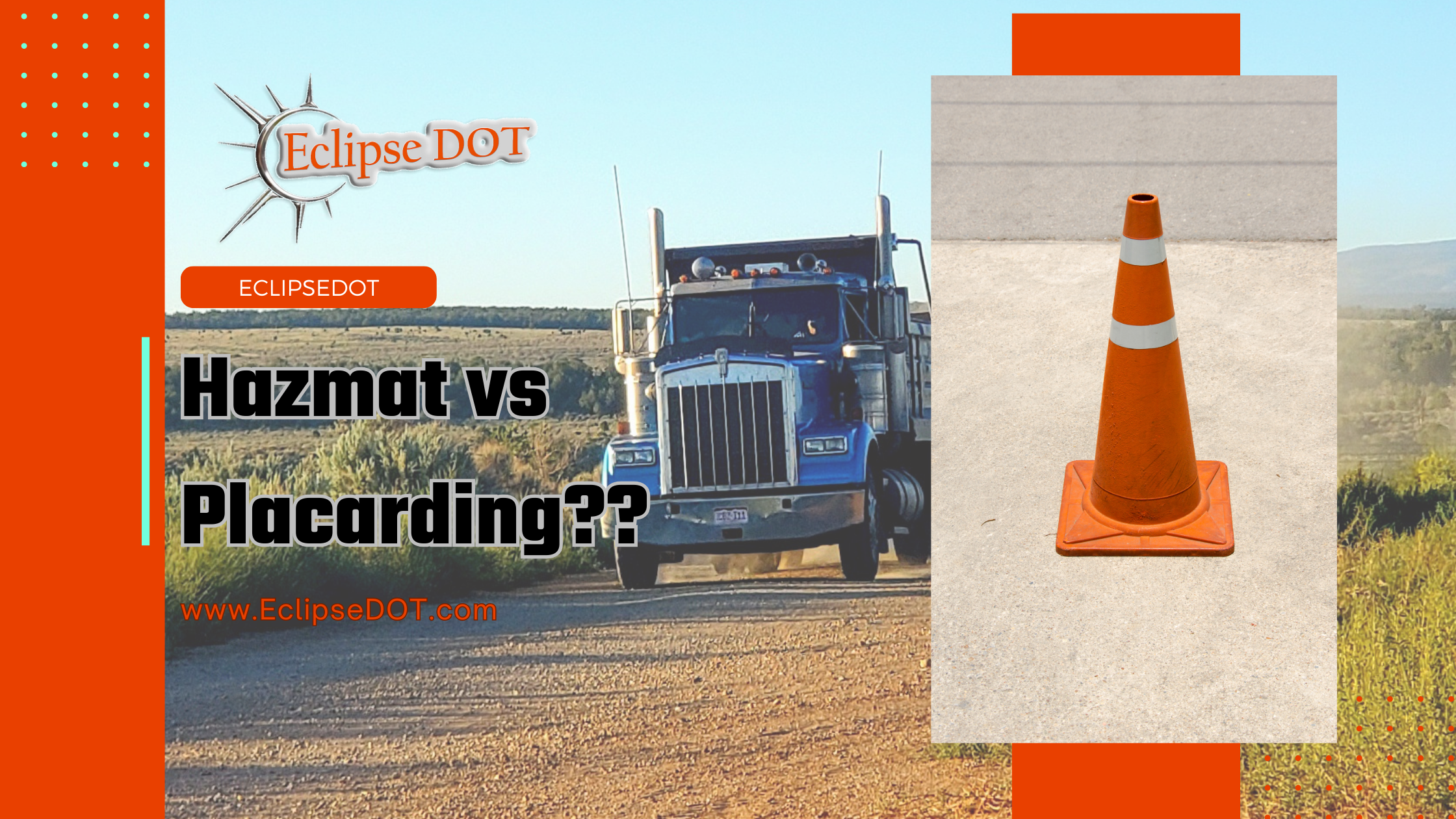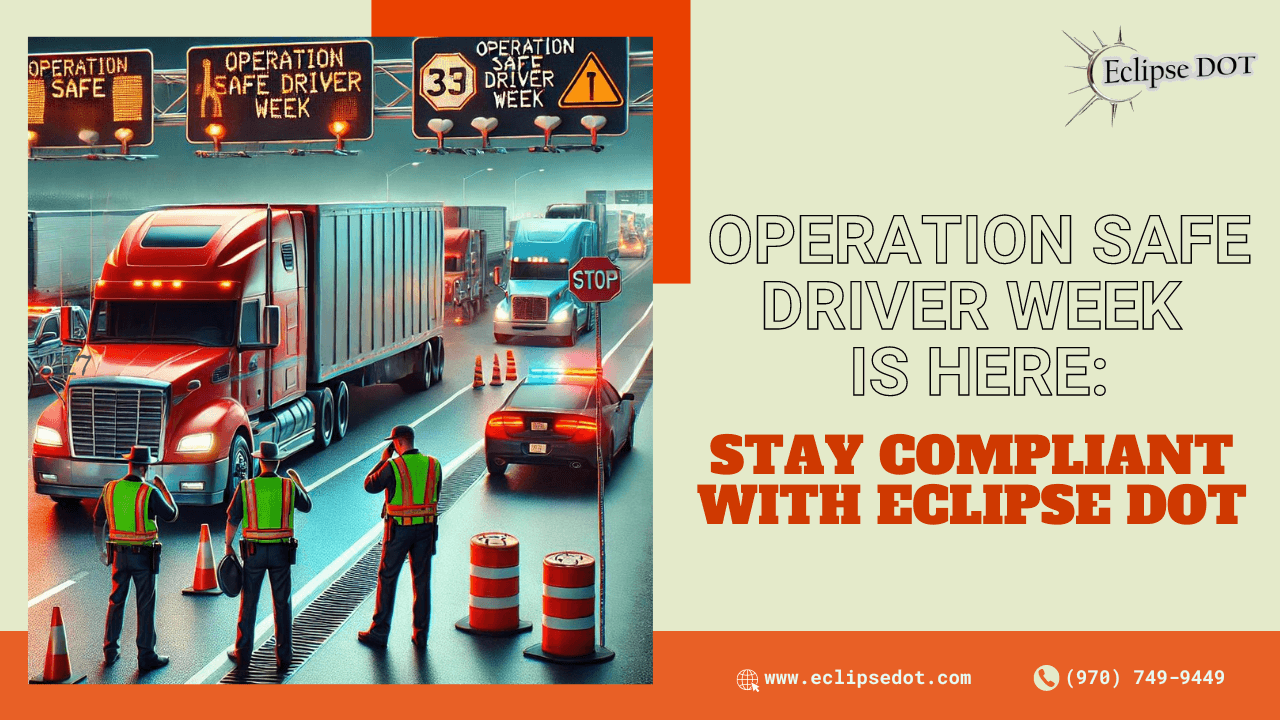Hazmat vs. Placarding: Understanding the Essentials
Defining Hazardous Materials (Hazmat)
The Department of Transportation (DOT) defines a hazardous material as any item or chemical that, when transported or moved in commerce, poses a risk to public safety or the environment and is regulated under its Pipeline and Hazardous Materials Safety Administration regulations (49 CFR 100–199). In other words, any item or chemical that could potentially be a hazard falls under this definition.
The Nine Hazard Classes
The DOT categorizes hazardous materials into nine different hazard classes:
- Explosives
- Gases
- Flammable and Combustible Liquids
- Flammable Solids
- Oxidizing Substances and Organic Peroxides
- Toxic and Infectious Substances
- Radioactive Materials
- Corrosives
- Miscellaneous Hazardous Materials
Common Questions About Hazard Classes
After looking at the list of hazard classes, questions can arise about what types of materials fit into these categories. Common queries from various transporters often relate to flammable solids and items considered under Miscellaneous Hazardous Materials.
An Example of Flammable Solids Would Be Defined By DOT As Follows:
- Solids that may cause a fire through friction, such as matches,.
- Pyrophoric (literally, “fire-loving”) materials are those that can ignite with no external ignition source within five minutes after coming into contact with air.
- Self-heating materials are those that exhibit spontaneous ignition or heat themselves to a temperature of 200 °C (392 °F) during a 24-hour test period. (This behavior is called spontaneous combustion.)
Dangerous when wet materials are those that react with water to become spontaneously flammable or to give off flammable gas or toxic gas at a rate greater than 1 liter per kilogram of the material per hour.
One flammable solid that always comes to mind is magnesium, which, if in the right conditions, like getting wet with water, can cause all kinds of fireworks.
Class 9 Hazmat: Miscellaneous Hazardous Materials
Class 9 hazardous materials present a hazard during transportation but do not meet the definition of any other hazard class. These include:
- Materials transported by air that could cause extreme annoyance to a flight crew member, preventing the crew from performing its duties
- Hazardous wastes
- Hazardous substances
- Marine pollutants
- Materials that meet the definition in the hazardous materials regulations (HMRs) for an elevated temperature material
An example is transporting various hazardous waste streams from their generators to the final disposal, where class 9 is often used for items such as ethylene glycol (spent automotive antifreeze).
Placarding Requirements
Now that we have detailed what constitutes a hazardous material, another frequently asked question is about placarding: which hazardous materials or waste need to have placards, how often they should be used, and how many are needed per load. The DOT provides basic regulations regarding placarding.
When the aggregate gross weight of all hazardous materials in non-bulk packages covered in Table 2 is less than 454 kg (1,001 lbs), no placard is required on a transport vehicle or freight container when transported by highway or rail [§172.504(c)].
Non-bulk packages: Portable containers like drums, totes, boxes, crates, etc. Bulk packages: Complete tankers, rail tanks, or vessels built into the unit transporting them, whereas non-bulk containers can be moved from unit to unit by hand, lift trucks, or cranes.
Identification Number Markings
Identification number markings on orange panels or appropriate placards must be displayed on:
- Tank cars, cargo tanks, portable tanks, and other bulk packaging
- Transport vehicles or freight containers containing 4,000 kg (8,820 lbs) in non-bulk packages of only a single hazardous material having the same proper shipping name and identification number loaded at one facility, and transport vehicles that contain no other material, hazardous or otherwise
- Transport vehicles or freight containers containing 1,000 kg (2,205 lbs) of non-bulk packages of materials poisonous by inhalation in Hazard Zone A or B
Practical Example of Placarding
For instance, if transporting drums of hydrochloride acid, you would need to placard your load and label each container with the Corrosive Class 8 Placard and label. However, if transporting a major cargo tank full of hydrochloride acid, you would need to use the Corrosive Class 8 placard and label it with a 1789 ID number.
When placarding a transport truck, bus, trailer, or tanker, placards need to be visible on all four sides of the unit, and placards need to be at least 9.84 inches on all sides. Sticker labels need to be at least 3.9 inches on all sides.
Conclusion
We just touched on a few basic items regarding hazards and placarding, but we are excited to provide any guidance regarding the placarding of hazardous materials. Please feel free to contact us to help make your life easier.
Please feel free to contact us to help make your life easier. Click here to dive deeper at https://eclipsedot.com/articles and drive your knowledge to new heights!





